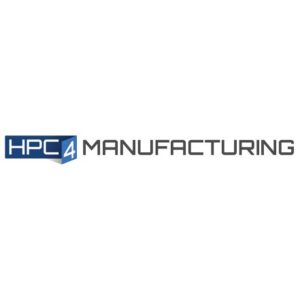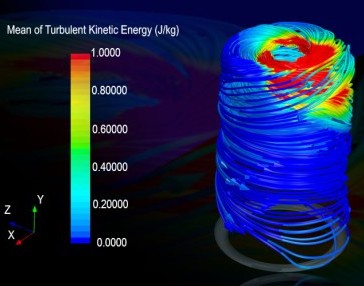 Today the High Performance Computing for Manufacturing (HPC4Mfg) at LLNL announced nearly $3 million for 13 projects to stimulate the use of high performance supercomputers to advance U.S. manufacturing. Manufacturer-laboratory partnerships help the U.S. bring technologies to the market faster and gain a competitive advantage in the global economy.
Today the High Performance Computing for Manufacturing (HPC4Mfg) at LLNL announced nearly $3 million for 13 projects to stimulate the use of high performance supercomputers to advance U.S. manufacturing. Manufacturer-laboratory partnerships help the U.S. bring technologies to the market faster and gain a competitive advantage in the global economy.
DOE’s national laboratories have some of the most significant high performance computing (HPC) resources available, including some of the fastest supercomputers in the world. There is great potential for the U.S. manufacturing industry to use the power of HPC to solve key challenges, but many manufacturers lack access to supercomputing resources.
The High Performance Computing for Manufacturing (HPC4Mfg) program, supported by DOE’s Advanced Manufacturing Office, unites DOE’s supercomputing capabilities and expertise with American manufacturers to optimize production processes and designs, enhance product quality, predict performance and failure, and speed up design and testing cycles while decreasing energy consumption. Manufacturer-laboratory partnerships leverage expertise in advanced modeling, simulation, and data analysis to accelerate innovation and shorten the time of adoption of new technologies in U.S. manufacturing.
Selected projects will be awarded up to $300,000 in federal funding to cover the costs associated with using the supercomputers and technical expertise provided by the laboratory partners. Industry partners will provide a participant contribution of at least 20% of the DOE funding for the project.
The following projects were selected for awards:
- 3M – This project will optimize the design of emissive films on building windows for cooling via modeling of glass bead filled polymers.
- 3M – This project will minimize energy consumption of the fiber spinning manufacturing process using computational fluid dynamics (CFD) and machine learning.
- Alliance for Pulp & Paper Technology – This project will help create a fundamental understanding of alkali reactivity with wood components using molecular modeling.
- Arconic, Inc – This project will study the thermomechanics of micro-pores during the rolling process of aluminum slabs to improve yield.
- GE Global Research Center – This project will extend GE Global Research Center’s TRUCHAS model to large-scale casting simulation of turbine blades.
- KeraCel – This project will model a new plan to push energy density in Li batteries with lithium oxide garnet with the goal of lowering the required temperature to reduce porosity in sintering.
- Seurat Technologies – This project will use the ALE3D software to optimize Seurat’s innovative laser energy flux distribution to reduce spatter during laser powder bed fusion.
- SFP Works, LLC – This project will use computational effort to understand phase transformations that occur during the flash heat treating process in order to better control parameters to obtain the desired phase distribution and chemistry.
- Steel Manufacturing Simulation and Visualization Consortium – This project will create a shared database of heat exchange in 140 steel reheat furnaces whose inconsistencies lead to significant energy loss.
- The Dow Chemical Company – This project will model methods to reduce the thermal conductivity of Dow’s insulating foam polyurethane products while using less polymer in products.
- Transient Plasma Systems – This project will build a comprehensive numerical model for use in understanding and optimizing key parameters in electrical pulse generation of plasmas for dilute burn combustion.
- United Technologies Research Center – This project will develop a novel heat treatment scheme that eliminates deleterious phases from the microstructure additively manufactured aerospace components while reducing the annealing time.
- VAST Power Systems, Inc. – This project will optimize gas turbine combustors by developing and validating surrogate models using CFD.
In this video from the 2016 HPC User Forum in Austin, Wayne O Miller from LLNL announces a new RFP for the HPC4mfg program.
Read more about the individual projects on Lawrence Livermore National Laboratory’s High Performance Computing for Manufacturing.
The HPC4Mfg program is managed by Lawrence Livermore National Laboratory, with support from Oak Ridge National Laboratory and Lawrence Berkeley National Laboratory, and has supported more than 40 projects and provided more than $15 million for these public-private partnerships. Additionally, the National Renewable Energy Laboratory and Argonne National Laboratory provide computing cycles to support this program.
The Advanced Manufacturing Office (AMO) supports early-stage research to advance innovation in U.S. manufacturing and promote American economic growth and energy security.




